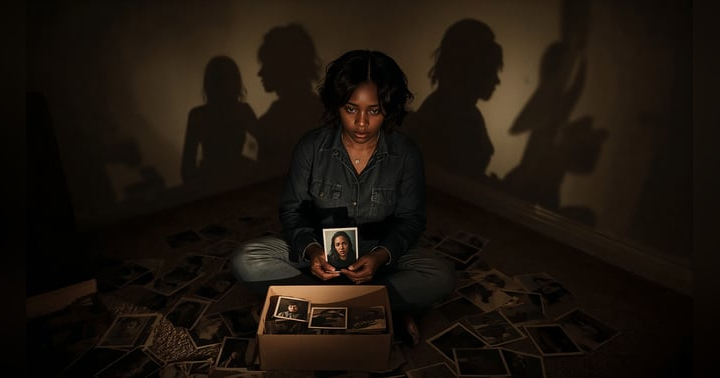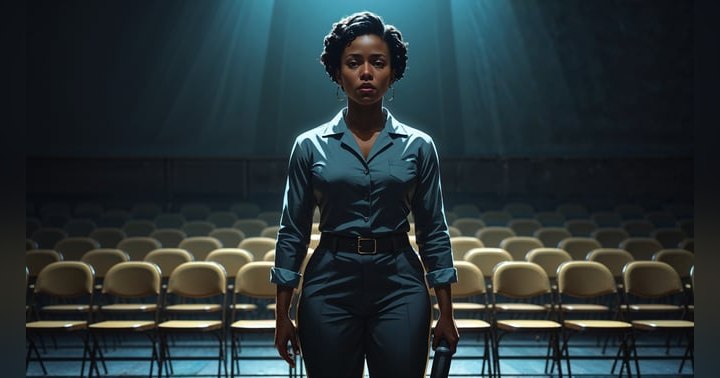Why Stories Like Cassie Ventura's Matter

Cassie Ventura’s testimony in the federal trial against Sean “Diddy” Combs is more than a high-profile legal moment—it’s a mirror held up to how we treat survivors. Her story is deeply personal, undeniably painful, and tragically familiar to those of us who work in trauma-informed care.
In my behavioral health work, I’ve heard many stories like Cassie’s. Stories of control disguised as love, of silence born out of fear, of survival against systems stacked against healing. Each one was heartbreaking. But in that heartbreak, I grew. I learned to listen deeper. To understand pain not as weakness, but as a signal—a story that deserves safety, not suspicion.
Why Her Voice Matters
Cassie Ventura’s voice matters because silence is often the only safe place a survivor has. For years, Cassie carried a story that could shatter careers, reputations, and public illusions—but also, one that could finally set her free. Choosing to speak publicly, especially against a powerful figure, is an act of monumental courage. It defies the conditioning so many survivors receive: Stay quiet. Be grateful. Don't make it worse.
Her voice breaks that mold—and in doing so, it breaks the generational and societal patterns that protect abusers and punish the abused.
But let’s be clear: Cassie’s story isn’t an invitation to gossip or voyeurism. It’s a sacred offering. When a survivor speaks, they’re not just recounting events. They’re re-entering the trauma to bring it into the light. That requires immense emotional labor. And it demands a level of care and integrity from all of us in how we hold that story.
That’s something I’ve carried with me deeply—first as the host of Recovery Replay, and now with Mental Health Rewritten. Every time I tell someone’s story, I approach it with care, concern, and a responsibility that I never take lightly. These are not just narratives. These are lived experiences filled with pain, complexity, and resilience.
When Cassie speaks, it validates the voices of others still in the shadows. It says to the girl who hasn't yet left, or the man who’s afraid to speak, or the survivor struggling in silence: “You are not alone. And you are not to blame.” No matter how she ended up there, it doesn’t make her any less of a victim—or any less of a survivor.
Facing the Harmful Questions
Let's address the questions people ask—questions that often reveal more about our collective misunderstanding than about the survivor’s experience.
“How come she didn’t leave?”
This question assumes safety and autonomy—two things often stripped from survivors. Abuse isn't always physical—it’s often psychological. Take coercive control which operates through isolation, financial dependence, and psychological manipulation. It distorts reality, severs support systems, and instills fear. According to the DSM-5, trauma-related disorders such as PTSD can impair decision-making and foster trauma bonds, a psychological attachment to an abuser born of repeated cycles of harm and "rescue".
“Why are you just now saying something?”
Because trauma is a thief of time. Survivors spend years piecing together their sense of self, processing guilt that doesn’t belong to them, and gathering the courage to face disbelief. When I worked on episode 3 of Mental Health Rewritten (due out this summer), trauma advocate Dan Worheide explained it to me that victims don’t just endure the event. Survivors like Cassie face:
- Initial trauma from assault and abuse.
- Secondary trauma from disbelief by institutions meant to protect.
- Medical trauma from the invasive processes required to "prove" harm.
- Social trauma from online skepticism and public ridicule.
“You must have liked it if you stayed.”
This reveals a cruel misunderstanding of trauma. It ignores the complex psychological grip of abuse—how shame, fear, and manipulation can silence even the strongest voices. Survivors often internalize guilt and confusion, and the coercive control I mentioned before can create a warped sense of reality where affection, dependency, and fear coexist. Cassie’s story, like many others, is shaped by deep power imbalances and emotional entrapment. Abuse is not enjoyed. It is endured.
And yet, many—like Cassie—still choose to speak. That act alone is revolutionary.
What People Don’t See: The Survivor’s Journey
Cassie’s story reveals the invisible terrain survivors must traverse:
-
Emotional dissociation to function in daily life while carrying deep psychological wounds.
-
Medical trauma from repeated invasive experiences.
-
Social invalidation—when strangers question, blame, or mock.
-
Healing as resistance—choosing therapy, community, and self-advocacy.
Final Thought
Cassie Ventura’s story isn’t just one woman’s or even one person’s experience—it’s a lens into how our culture understands and misunderstands trauma. And if there’s one thing I’ve learned from my time in this work, it’s this: Every survivor deserves more than our curiosity. They deserve our compassion, our belief, and our willingness to grow. If we’re serious about mental health, we have to listen when the most painful stories are told. Not just for justice—but for healing, for understanding, for rewriting what it means to survive.
Take Care Of Yourself.
If You’re Reading This and You’ve Been Hurt
If you or someone you love has experienced sexual violence, help is available. Speaking up can feel impossible—but it is a step toward healing, not weakness.
Reach out. Talk to someone you trust. Contact a support line.
📞 RAINN (U.S. National Sexual Assault Hotline): 1-800-656-HOPE (4673)
🌐 Chat online anonymously at www.rainn.org
Your story matters. And your healing is possible.








